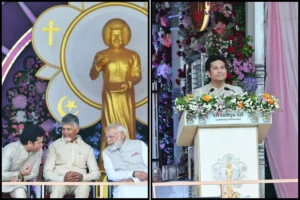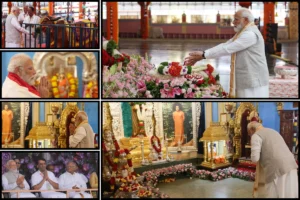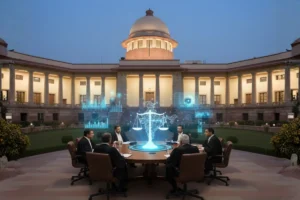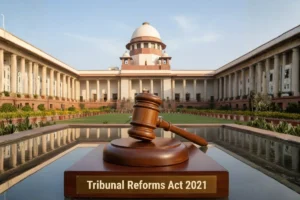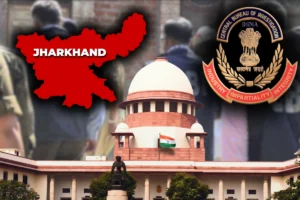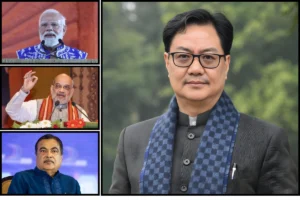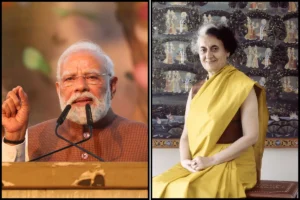
The Supreme Court’s Constitution Bench, led by Chief Justice BR Gavai along with Justices Surya Kant, Vikram Nath, K Vinod Chandran and Joymalya Bagchi, has issued a major decision establishing uniform and binding criteria for determining seniority within Higher Judicial Services across all states.
The Bench ruled that seniority will now be fixed through a four-point roster system, applicable nationwide.
The Court made it clear that the new guidelines will not interfere with the inter-se seniority of officers already appointed.
The Bench emphasised fairness and ruled that seniority must follow the merit-cum-seniority principle, rejecting claims that long service as a civil judge justified creating a separate class.
CJI Gavai remarked that personal aspirations for faster promotion cannot dictate the structure of judicial services and that such ambitions are a natural part of professional life.
Addressing Concerns Within Judicial Cadres
The Constitution Bench had examined a long-standing issue: in many states, judicial officers recruited as Civil Judges (CJ) rarely rise to the post of Principal District Judge (PDJ), and elevation to the High Court remains even more elusive.
This situation has reportedly discouraged capable young advocates from joining at the Civil Judge level.
The Bench acknowledged these systemic concerns while asserting that uniformity and transparency in seniority rules were essential for a strong judiciary.
During the hearings, tensions surfaced between the Supreme Court and the Allahabad High Court.
Representing the High Court, senior advocate Rakesh Dwivedi argued that the Supreme Court should refrain from intervening in matters governed by Article 227(1), under which High Courts supervise district judiciary operations.
He contended that framing service rules should remain the exclusive domain of High Courts.
Dwivedi questioned whether High Courts should be deprived of constitutional authority and insisted that their role must be strengthened, not undermined.
Dwivedi also cautioned the Supreme Court against intervening in recruitment, retirement age, or promotion quotas for district judges.
He cited the Court’s 2017 conceptual paper, which had proposed a national examination conducted by the Supreme Court for direct recruitment of district judges from the Bar.
The Bench, however, clarified that while reforms may evolve, the current directions are general, necessary, and mandatory.
CJI Gavai noted that judges often perform challenging duties and make decisions that others avoid. He also reiterated that future adjustments to the service framework are possible as the system evolves.
The new four-point roster marks a significant step towards creating a transparent, equitable, and nationally consistent structure for judicial careers in India.
Also Read: Supreme Court Quashes Tribunal Reforms Act Provisions; Cites Threat To Judicial Independence
To read more such news, download Bharat Express news apps







